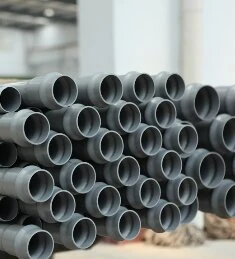Dec . 11, 2024 10:51 Back to list
Understanding PPR Pipe Characteristics and Applications for Modern Plumbing Solutions
Understanding PPR Pipes A Comprehensive Overview
In the realm of modern plumbing and construction, PPR (Polypropylene Random Copolymer) pipes have emerged as a frontrunner for both residential and industrial applications. Known for their remarkable versatility and durability, PPR pipes have become a go-to choice for numerous plumbing systems across the globe. This article explores the inherent features, advantages, and applications of PPR pipes, shedding light on why they are increasingly preferred over traditional piping materials.
What are PPR Pipes?
PPR pipes are manufactured from a type of polypropylene, a thermoplastic polymer known for its strength and resistance to various chemicals. The random copolymer aspect refers to the unique molecular structure of the polypropylene, which allows for enhanced flexibility and impact resistance. As a result, PPR pipes offer several significant advantages that make them suitable for both cold and hot water transport.
Key Advantages of PPR Pipes
1. Durability and Longevity PPR pipes are resistant to corrosion, scaling, and rust, which can significantly extend their lifespan. They can last over 50 years when properly installed and maintained, making them a cost-effective investment in the long run.
2. Temperature and Pressure Resistance These pipes can withstand high temperatures, often reaching up to 95 degrees Celsius (203 degrees Fahrenheit), without compromising their structural integrity. This property makes PPR pipes ideal for hot water systems, including heating and plumbing applications.
3. Lightweight and Easy to Handle Compared to traditional materials like metal, PPR pipes are relatively lightweight. This characteristic makes transportation and installation simpler, reducing labor costs and time on construction projects.
4. Flexibility The flexibility of PPR pipes allows for easier installation, especially in tight spaces. They can be bent, which often eliminates the need for additional fittings, leading to a more streamlined installation process.
ppr pipe

5. Resistant to Chemicals PPR pipes exhibit excellent chemical resistance, making them suitable for industrial applications where they come into contact with various aggressive substances. This makes them a preferred choice for chemical processing plants and food and beverage industries, where hygiene is paramount.
6. Environmentally Friendly Made from recyclable materials, PPR pipes are a more sustainable option compared to PVC or metal alternatives. The production of PPR pipes is also less harmful to the environment, as it emits fewer pollutants.
Applications of PPR Pipes
PPR pipes find versatile applications across various sectors, including
- Residential Plumbing They are commonly used for potable water supply lines, heating systems, and irrigation systems due to their durability and non-toxic properties. - Industrial Uses These pipes are frequently employed in chemical processing, food and beverage production, and other industrial settings where chemical resistance is essential.
- Heating Systems In radiant heating systems and floor heating applications, PPR pipes are favored due to their ability to handle high temperatures and pressures.
- Construction PPR pipes are increasingly being utilized in construction projects, ranging from drainage systems to HVAC applications.
Conclusion
PPR pipes have revolutionized the piping industry by offering a reliable, flexible, and cost-effective alternative to traditional materials. With their outstanding durability, chemical resistance, and lightweight nature, they cater to a wide range of applications essential for modern plumbing and construction needs. As the demand for sustainable and efficient materials grows, PPR pipes are set to play an even more significant role in shaping the future of piping solutions. Whether for residential, commercial, or industrial applications, understanding the qualities and benefits of PPR pipes is crucial for anyone engaged in construction or plumbing work. By choosing PPR, stakeholders can ensure they are investing in a product that combines performance with environmental responsibility.
-
High-Quality PPR Pipes and Fittings Durable ERA PPR & PVC PPR Solutions
NewsJul.08,2025
-
Black HDPE Cutting Board - Durable, Non-Porous & Food Safe HDPE Plastic Cutting Board
NewsJul.08,2025
-
High-Quality CPVC Panel Durable HDPE & PVC Panels Supplier
NewsJul.08,2025
-
Double PE Welding Rod Supplier - High Strength, Durable & Versatile Welding Solutions
NewsJul.07,2025
-
High-Quality PVC-O Pipe Supplier Durable 75mm PVC Pipe & Connections Leading PVC Pipe Company
NewsJul.07,2025
-
HDPE Drainage Pipe Supplier – Durable & Corrosion-Resistant Solutions
NewsJul.06,2025

